Eco-Friendly products have completely redefined mankind’s efforts to preserve Mother Nature.
This is especially needed when research has indicated an alarming rise in plastic waste. Not to mention, there is an alarming rate of growth in the heaps of plastic that lands up in oceans every year. In fact, a report by Conserve energy states that the quantity of plastic in the ocean will outweigh the number of fish by the year 2050!
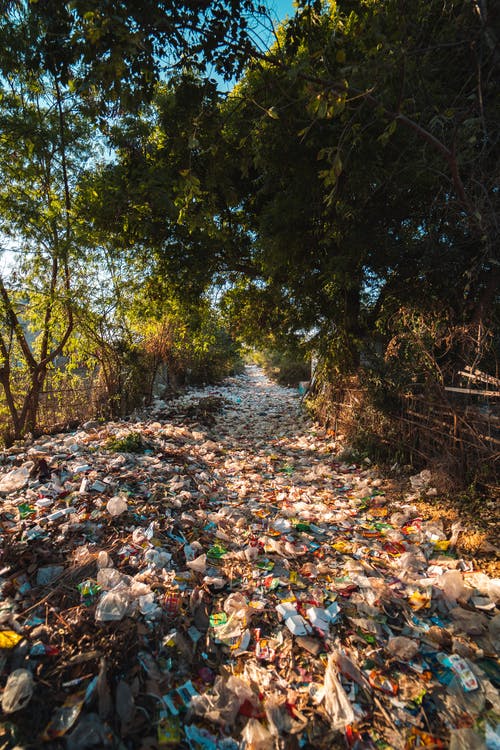
Millions of marine and aquatic life die due to the effect of plastic pollution in our oceans, and sadly many have been erased from existence. When it comes to minimizing the environmental footprint,a switch to eco-friendly products is perhaps the most crucial step.
What are eco-friendly products?
When compared to plastic, eco-friendly products help to preserve the environment in a way that was unimaginable, just a few years back.
By definition, a biodegradable or eco-friendly product simply means a set of daily use items that are completely harmless and can be disposed of easily. They do not harm the environment at any stages of production, use or disposal.
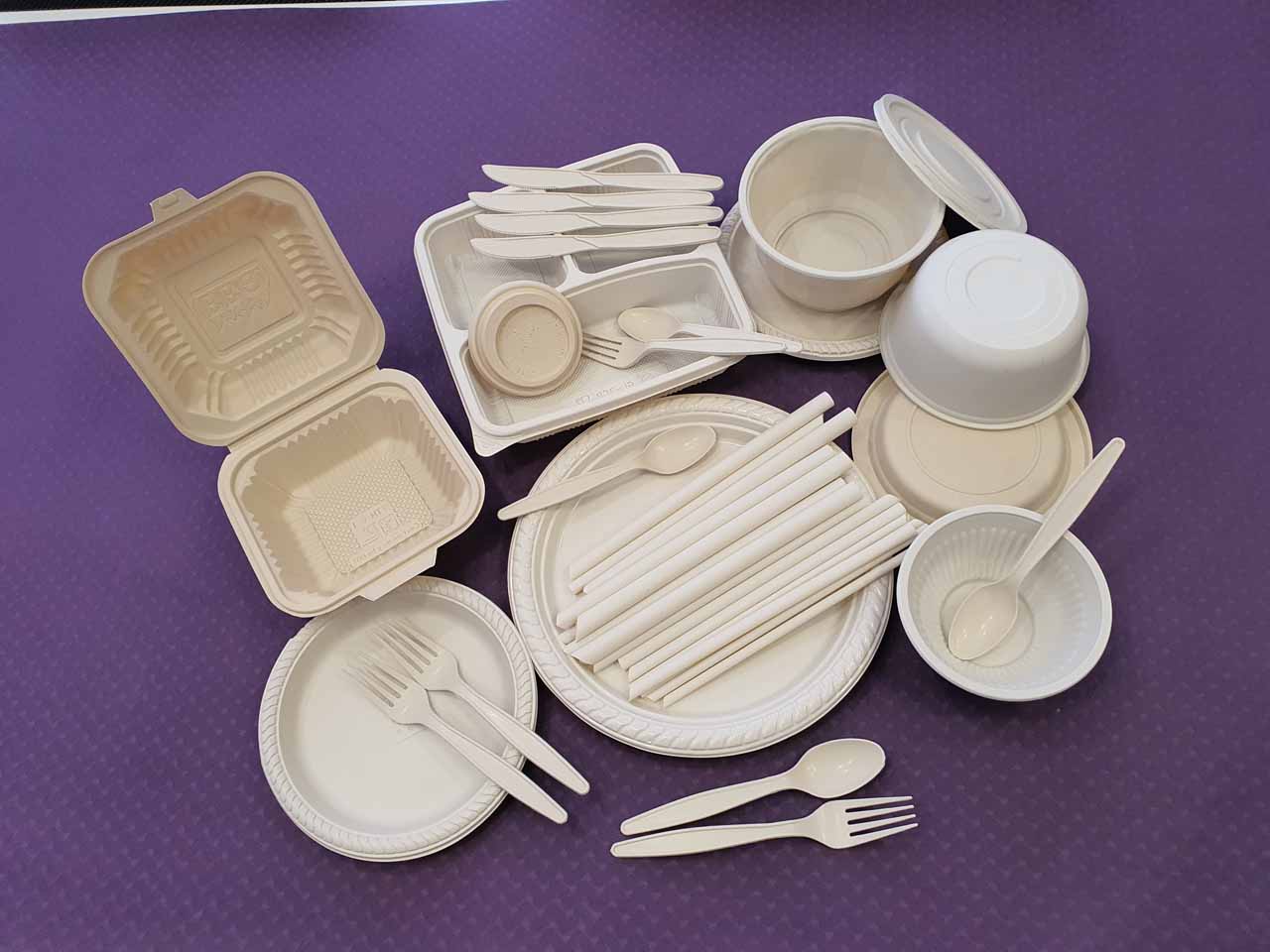
Environment-friendly products are a great boon when it comes to improving the quality of water, air, and land. Unlike the popular myth, replacing a good number of everyday use items with these products does not require a lot of time, money and effort.
In fact, there are a good number of biodegradable and compostable everyday use products like kitchenware, which we can start using immediately.
So, why make the shift? And what are the benefits?
Read on to learn more..
Importance of eco-friendly products
Green products help to reduce the carbon footprint and to conserve energy.
Since most of these are recyclable, compostable or biodegradable, they can be disposed of easily and can degrade naturally within the environment.
Moreover, certain eco-friendly products are made out of recycled materials which reduces the need for new raw materials.
Not to mention, shifting to a green plastic-free life means encouraging a healthier lifestyle in the long run.
Following are the key benefits of shifting to a plastic free lifestyle and encouraging eco friendly products in your everyday environment:
-
Eco-friendly products help to promote a healthier lifestyle
Eco-friendly products ensure complete safety from artificial chemicals or substances which can be a threat to your personal health.
Artificial substances such as plastics are known to cause a wide range of illnesses after prolonged use. Several illnesses such as reproductive abnormalities, immune system maladies, allergies, eye disorders are known to be caused due to the prolonged use of plastic and other non-eco-friendly products.
Green or biodegradable products that are free from harmful chemicals help to promote complete healthy living in terms of illnesses, age, diseases, and mortality.
-
Promotes a safer home environment
Using green supplies ensures a clean home which is free from toxins-perfect for keeping the family members and kids safe and healthy. These days when more and more chemicals are added to the common household products, it is always advisable to use products made of naturally occurring raw materials to ensure a long term safety.
-
Reduces cost
While it is true that the environment-friendly products are biodegradable and need constant replacement, their production processes are often simpler and faster as compared to synthetic plastics. This makes some of them a more viable option for long term use.
-
An ideal choice for business- Do your part for the environment
Transitioning your business to using green products is a welcome step that is often appreciated by the clients and consumers.
Difference between biodegradable and compostable products
The fundamental difference between biodegradable and compostable is that while biodegradable products are quite capable of decomposing naturally, compostable products require a certain specific setting in order to facilitate the breakdown.
As compostable products are mostly organic matter, the end product will act as a good fertilizer in improving soil health.
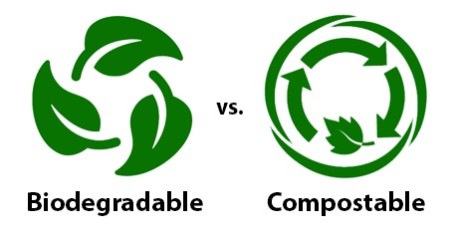
For some biodegradable products, it may sometimes take years to break down. These include plant-based plastics which might take years to break down given the right set of conditions.
On the other hand, compostable products break down quite quickly.
While biodegradable products may sometimes leave a toxic residue, their compostable counterparts are residue free and are completely organic.
When compared to plastic products that will take hundreds of years to disintegrate, both biodegradable and compostable products are far better in keeping the environmental footprint to a minimum.
Growing environmental awareness and new inventions
It is interesting to note that an increasing number of big and small businesses are encouraging eco-friendly inventions. Needless to say, the planet has reached a critical point where we have to step towards a greener tomorrow for the welfare of our future generations.
Within the second half of the twentieth century, there was a sudden upsurge in the awareness of environmental protection. Although this awareness was gradually growing, the movement further gained momentum in the past decade. Strict laws were written down and enforced by developed countries such as Japan, Europe and the United States.
Governments of countries around the world began to actively undertake and participate in various environmental protection activities. Major public demonstrations further catalyzed the need for officials to protect mother earth.
The concept of green engineering has greatly evolved over time with a unique blend of environmentally conscious attitudes, values, and principles in the matrix of science and technology.
It is interesting to note that an increasing number of enterprises and brands are bringing in eco-friendly inventions.
Use of new materials for eco-friendly and household products
The past decade has seen a huge number of inventions and innovations when it comes to using new raw materials to produce biodegradable and compostable everyday use items.
For product designers and firms, there are several reasons to develop an environmentally friendly design. While one of them is a growing shift towards public environmental e other reason is that there is a growing market share of companies and restaurants demanding eco-friendly products.
With the rising demands amongst the consumer industries, especially food and packaging industry, there are financial incentives for the companies which are shifting towards eco-friendly products.
Additionally, the kind of design procedures and practices for environmentally friendly products are more cost-effective and efficient in the long run.
At present most eco-friendly products are derived out of raw materials such as bamboo, teak, cork, organic cotton, soya fiber, hemp, etc:
Due to its high adaptability and antibacterial properties, bamboo is considered as the most renewable resource and unique plant on the planet.

The natural fibers derived out of bamboo pulp can be used to create a fabric which is almost similar to linen. Bamboo hardwood is highly useful when it comes to creating fishing rods, ladders, scaffolding, paper, flooring, furniture, window blinds, and even musical instruments.
Bioplastics are made out of biopolymers and are an excellent invention that has the potential to be a sustainable alternative to common petroleum-based plastics.
Bioplastics get decomposed quite rapidly once disposed of, than petroleum-based ones which might take up several hundred years to break down. Bioplastic materials are made out of corn, potato starch, sugar, and cane fibers. In an effort to minimize the environmental pollution several multinational corporations such as coca-cola are gradually transitioning to bioplastics.
Top 10 eco-friendly products for everyday use
Following is our list of top ten eco-friendly products that can be introduced in our everyday living as a part of our duty towards environmental causes:
1. Compostable straws
Straws are one of the most unavoidable commodities in our daily life. Research has estimated that on an average 500 million straws are used in the US every day.
Plastic straws are non-recyclable and non-biodegradable.
However, these may end up in oceans polluting the water and harming sea life. Perhaps many of you who have watched the viral video of a marine biologist removing a straw out of a sea turtle’s nostril might have noted the utter agonizing pain the poor animal goes through
Several companies have introduced eco-friendly compostable straws made out of bamboo and hay.
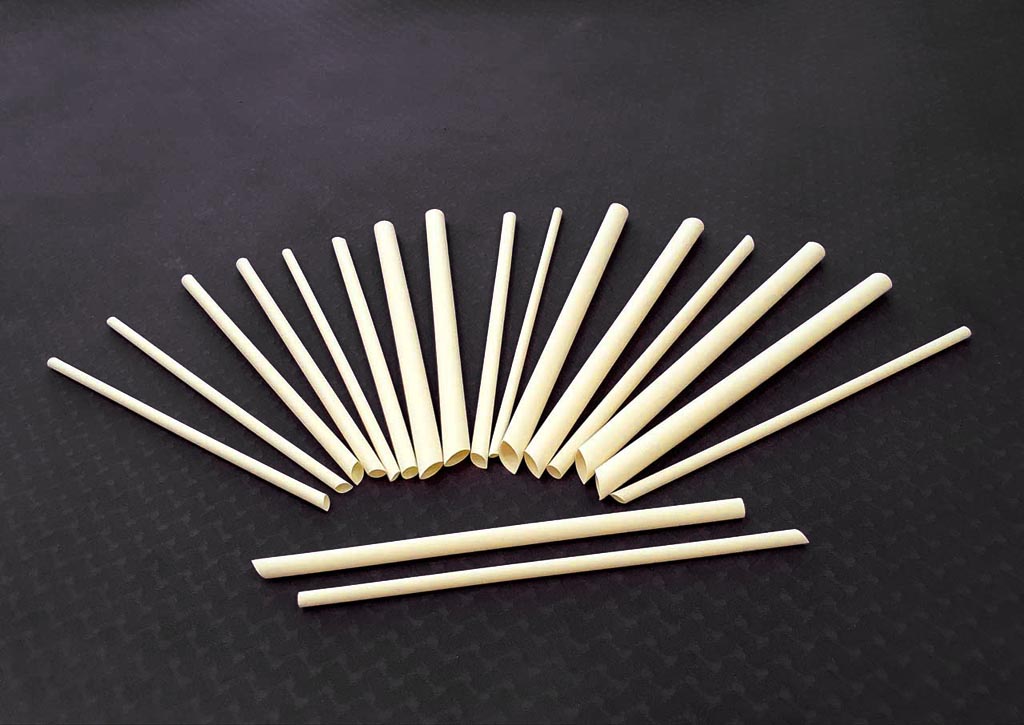
These can be used just like normal plastic straws. But the main advantage here is that unlike regular plastic straws, these are easily disintegrated in nature (landfills or oceans) as these are made of complete organic compounds.
2. Compostable plates
Plates are an essential part of kitchenware. Compostable plates are made out of natural crops such as sugarcane, grass, bamboo, corn, and others.

Once disposed after use, these plates will decompose into basic organic mass, thereby reducing the deposition of plastic waste in nature.
Businesses that use compostable plates are now understanding the long term benefits of making the shift.
They are not just supporting the environment and doing their bit to reduce the carbon footprint, but also creating a positive impression on their prospective clients.
Customers are often impressed by businesses that care about the environment.
If you are a restaurant owner who serves food on compostable plates and invests in compostable cutlery and straws, it will definitely create a positive brand image for your organisation as compared to your competitors.
3. Biodegradable cups
Disposable eco-friendly cups can be used just like their plastic counterparts.
These are designed to hold both hot and cold drinks with the required amount of thickness.
Additionally, biodegradable coffee cups reduce the chance of food contamination, which is natural when using synthetic plastic based cups.
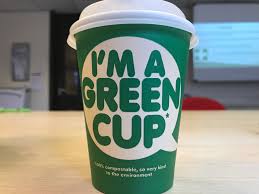
In recent years, disposable coffee cups have gained huge popularity in the beverage industry, with brand leaders like Starbucks making the shift to reusable cups for serving their customers.
Research has indicated that by around 2026, disposable cups worth more than US$ 21.2 will be sold out in the global market.
Bagasse paper which is used to build eco-friendly cups are obtained as a by-product of sugar production and does not require additional cultivation areas.
4. Compostable lids
Various beverage and fast food outlets, who made the shift to compostable cups, were still using plastic lids/covers.
And the result?
A major chunk of plastic waste coming out of these fast food brands composed of coffee cup lids/covers.

However, with new inventions in the last decade and various compostable item producers in Malaysian and global market, various leading brands are now ordering compostable lids as a better and more environmentally friendly alternative.
5. Compostable bags
Compostable or biodegradable bags are the new age alternative to plastic bags.
Tons of plastic bags which are dumped into the ocean bed or on earth (landfills) take hundreds of years to disintegrate. Factsheet Reports suggest that “It takes 500 (or more) years for a plastic bag to degrade in a landfill and even then, the bags don’t break down completely but become microplastics that absorb toxins and continue to pollute the environment.”

On the other hand, compostable bags made out of vegetable matter such as corn starch or potato which will fully break down. However, the conditions have to be set right in order to facilitate the breakdown.
6. Eco-Friendly Packaging
Eco-friendly packaging is a form of packing which uses biodegradable and environmentally friendly materials to ensure safety and minimize the environmental footprint.
These are easy to dispose of and have a very positive impact on the business (brand image), customers and the environment.
While the manufacturing cost of eco-friendly packaging is less when compared to synthetic packing, the shift is not easy to make.
However, various leading brands understand the boost that this shift gives to their brand image. This is the reason for an increasing demand for manufacturers producing green packaging that uses biodegradable materials such as organic materials and fabric, organic fillers, eco-friendly fillers, recycled plastic, and reusable packing materials.
7. Biodegradable spoons & cutlery
Biodegradable spoons, forks and knives are slowly gaining popularity as a better alternative to plastic pieces in the food and beverage industry across the globe.
Although strikingly similar in look and feel to the plastic-based ones, biodegradable cutlery is completely compostable, given the right set of conditions in nature.
Various raw materials like potato and corn starch are used to prepare compostable kitchenware and cutlery.
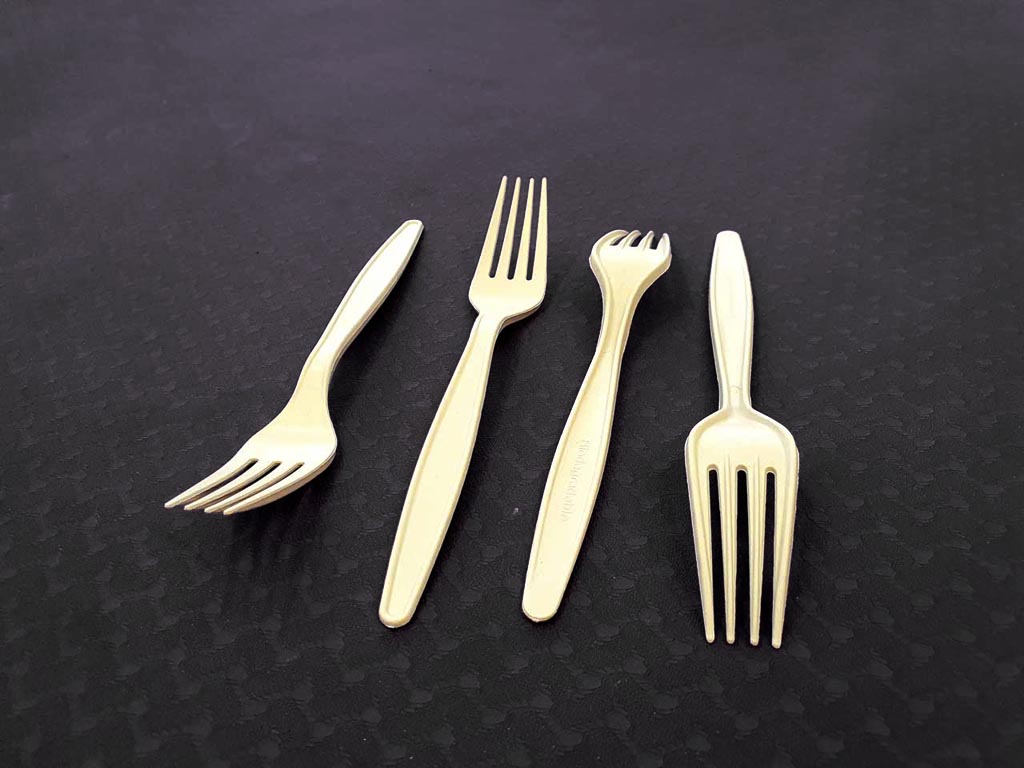
Bamboo powder is one of the most sustainable option., considering that it is completely compostable and healthy.
Various food industry giants are now demanding biodegradable cutlery made out of bamboo powder and other similar naturally occurring raw materials.
Bamboo based cutlery items are strong and often last long when compared to cutlery items made out of other organic compounds.
8. Clothes
Most of the clothing items that are produced and used these days have a synthetic component which takes years to decompose. This is because leading brands use clothes made out of synthetic components such as lycra and polyester.
As they degrade, these synthetic products will release greenhouse gases that can severely damage the ecosystem.
Recently many companies started producing biodegradable fabrics that are made out of, odal, flax, and hemp.
By implementing best practices that are environmentally friendly and reducing the use of dyes and other chemicals it is possible to produce clothing material which is completely green and decomposable.
The most commonly used biodegradable fabrics are made out of bamboo wherein the fibers are separated and treated with a chemical process.
9. Furniture
Modern-day furniture items are partially or fully made out of synthetic materials like plastic canes, synthetic fibers etc. These often do not degrade for several years after being disposed off.
Considering the growing issue of waste disposal and environmental awareness regarding plastics, various new age designers have turned towards biodegradable materials for designing the furniture.
In recent year’s bamboo furniture has gained popularity due to its eco-friendliness and unique rustic beauty.
Furniture and accessories made out of bamboo have a unique blend of minimalistic design and striking beauty.
Additionally, for people having allergies to synthetic materials, bamboo-based furniture would be the best option to choose in order to ensure a healthy and eco-friendly lifestyle.
10. Eco-friendly water bottles
Surveys have indicated that every year about 22 billion plastic bottles are dumped in landfills.
The best biodegradable alternative to plastic bottles is to shift to those made out of bamboo and red algae. These bottles can safely hold water for the same time as regular plastic ones and that too without any chemical intrusions. This keeps the water healthy and pure and maintains its natural taste and smell.
Further, when discarded, these bottles easily degrade in nature. .
Final words: Moving towards a sustainable future
The environment has deteriorated to unimaginable and shameful levels due to the discarded man-made plastic materials.
The negative impacts have intruded into all levels of the ecosystem. Several tons of plastic waste has been dumped into the oceans which have entered the food chain, threatening human and animal health. Thousands of marine mammals, sea birds, seals, and other marine animals are killed every year due to ingestion of plastic or getting entangled in the plastic dumps.
Health problems like eye and skin diseases, birth defects, respiratory problems, organ malfunctioning, kidney failures are a common result of seen due to excessive use of plastics.
It is high time that leading companies and individuals decide to make a shift towards a greener and eco-friendly lifestyle for future generations by opting for eco-friendly products like compostable cups, plates and cutlery.
A plastic free lifestyle is what we need to sustain the planet for the generations to come.

